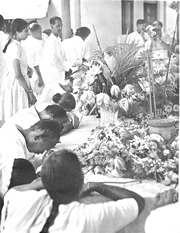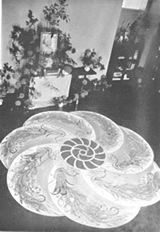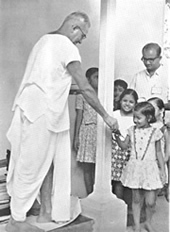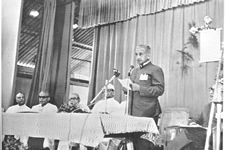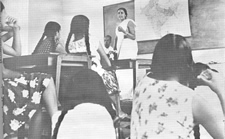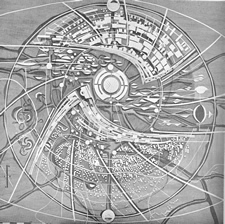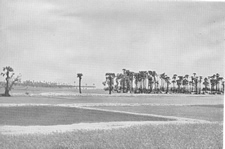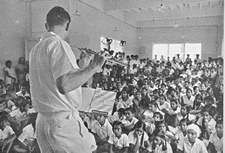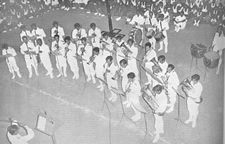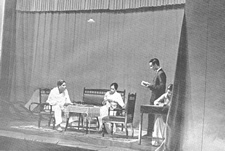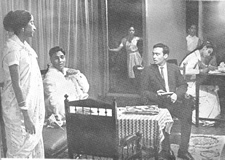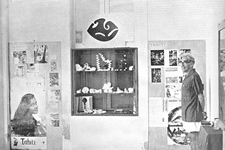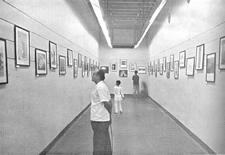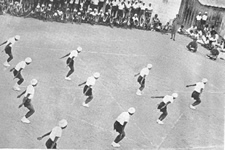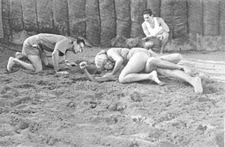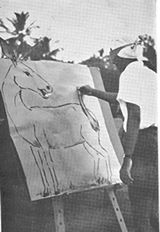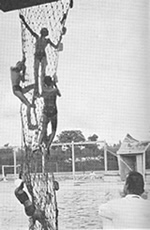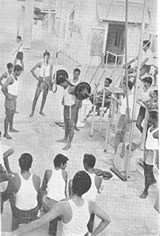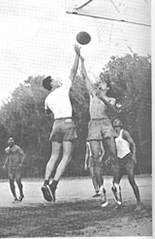|
The Spirit in man has one aim before it in all mankind ; but different continents or peoples approach it from different sides, with different formulations and in a different spirit. Not recognising the underlying unity of the ultimate divine motive, they give battle to each other and claim that theirs alone is the way for mankind. The one real and perfect civilisation is the one in which they happen to be born, all the rest must perish or go under. But the real and perfect civilisation yet waits to be discovered; for the life of mankind is still ninetenths of barbarism to one-tenth of culture.
*'*
If she consents to marry, that would be the best. All these vital disturbances proceed from suppressed sex-instinct, suppressed but not rejected and overcome. A mental acceptance or enthusiasm for the sadhana is not a sufficient guarantee nor sufficient ground for calling people, especially young people, to begin it. Afterwards these vital instincts rise up and there is nothing sufficient to balance or prevail against them,—only mental ideas which do not prevail against the instincts, but on the other hand, also stand in the way of the natural social means of satisfaction. If she marries now and gets experience of the human vital life, then thereafter there may be a chance of her mental aspiration for sadhana turning into the real thing.
|
L'Esprit dans l'homme a un seul but dans toute l'humanité, mais différents continents et différents peuples s'en approchent de différents côtés, avec des formules différentes et dans un esprit différent. Ne reconnaissant pas l'unité fondamentale du mobile divin ultime, ils se livrent bataille l'un à l'autre et proclament que seul leur chemin est le vrai chemin pour toute l'humanité. La seule civilisation réelle et parfaite est celle où il se trouve qu'ils sont nés, et tout le reste doit périr ou disparaître. Mais la civilisation réelle et parfaite attend encore d'être découverte, car la vie de l'humanité est encore neuf-dixièmes de barbarie pour un dixième de culture.
* **
(A propos d'une jeune fille qui a des difficultés)
Si elle consentait à se marier, ce serait le mieux. Toutes ces perturbations vitales proviennent de l'instinct sexuel refoulé—refoulé, mais non rejeté et surmonté. Une acceptation mentale ou un enthousiasme mental pour la sâdhanâ ne sont pas une garantie suffisante ni une base suffisante pour appeler les gens à l'entreprendre, spécialement les jeunes gens. Par la suite, les instincts vitaux se lèvent et il n'y a rien de suffisant pour les contrebalancer ou les dominer, seulement des idées mentales qui ne peuvent pas prévaloir sur les instincts, mais qui d'autre part s'opposent aussi aux moyens sociaux naturels de les satisfaire. Si elle se marie maintenant et fait les expériences de la vie vitale humaine, alors plus tard il peut y avoir une chance que son aspiration mentale à la sâdhanâ se change en la chose véritable. SRI AUROBINDO |

